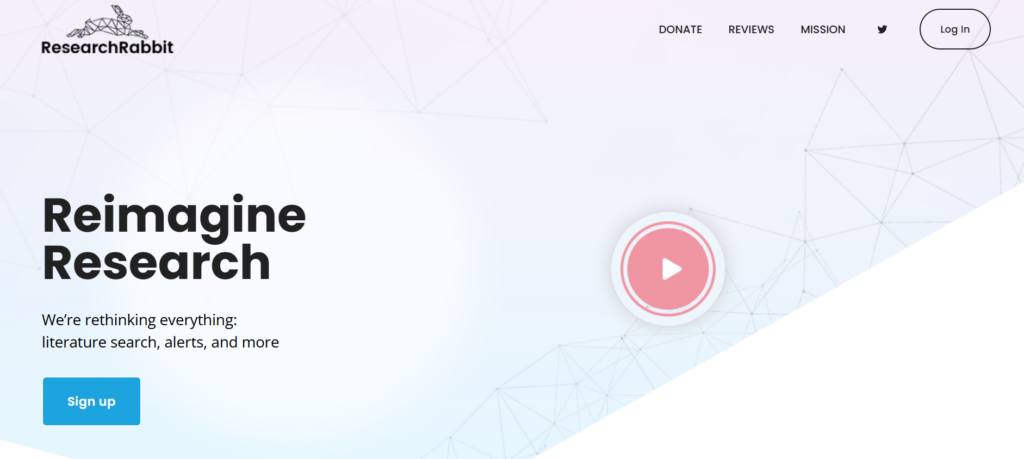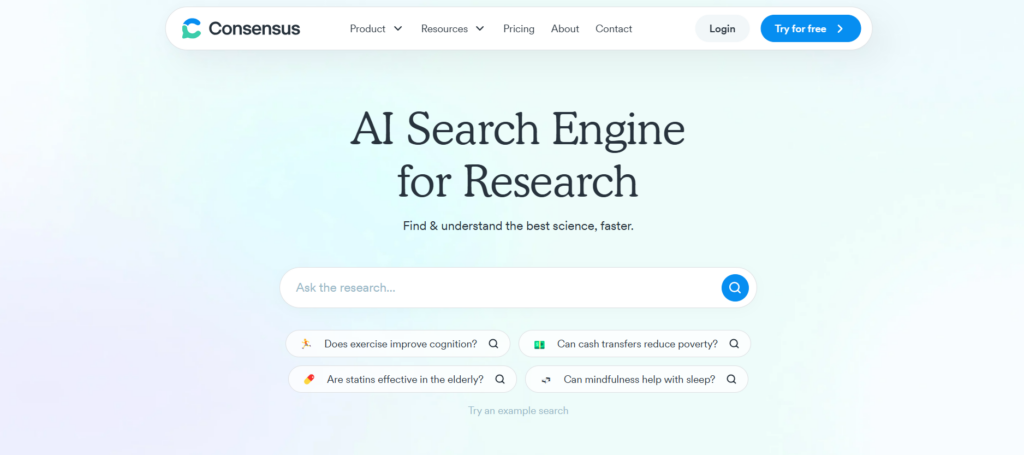Introduction:
AI technologies are quickly becoming essential or important in the field of research, with abilities that improve the efficiency, accuracy, and scope of academic results. These tools use powerful machine learning algorithms and data analytics to help researchers at various stages of their work, including literature assessment, data collecting, analysis, and publication. AI can automate boring tasks, discover patterns and insights in large datasets, and provide prediction models to direct future research directions. As the amount of data available grows drastically, AI tools become increasingly important in helping academics in exploring and making sense of complicated information scenarios, boosting the rate of discovery and innovation.
advantages of AI Tools for Research:
Efficiency and Speed: Artificial intelligence (AI) may automate repetitive processes such as data gathering, entry, and initial evaluation, allowing researchers to focus on more difficult elements of their job. This speed ups the research process and allows for project completion even faster and in a quicker way.
Data Analysis and Pattern Recognition: Artificial intelligence algorithms can quickly and accurately analyze huge datasets, discovering patterns, trends, and correlations that manual analysis may miss. This skill is especially useful in areas like social sciences, and climate studies.
Resource Management: AI tools can improve resource distribution by providing data into project management and research efficiency.
Enhanced Accuracy: AI decreases human error in data processing and analysis, resulting in more consistent outcomes. This is essential for making sure the validity of research findings.
Innovation and Discovery: By the analysis and processing of data in ways that humans may not consider, AI could reveal unique insights and inspire innovative approaches to research challenges.
AI Tools for Research:
1. Research Rabbit:
Research Rabbit is an AI tool which helps you to add research papers, check earlier research papers or work done by someone else in your field, check later work published by others etc. It says itself as ‘Spotify for papers’. It has interactive visualizations which helps to visualize networks of papers and co-authorships. You can use a graph to see previously done research papers and verify your research paper that the thing mentioned by you has some similarities to you.

Pros of Research Rabbit:
- Researchrabbit.ai has a user-friendly interface, making it simple for researchers to control and use the tool properly.
- The tool gives researchers access to a variety of databases and resources, allowing them to collect a huge number of information and data for their studies.
- Researchrabbit.ai creates individualized suggestions and ideas based on users’ research interests, helping researchers in finding or searching new sources and expanding their knowledge in their field of study.
Cons of Research Rabbit:
- Researchrabbit.ai may not give correct or dependable information, which could result in mistakes in research findings.
- The tool may have limited access to specific databases or resources, limiting the scope of research.
- Users may face technical mistakes or glitches when using researchrabbit.ai, resulting in delays or disturbance during the research process.
Pricing Plan of Research Rabbit:
Free
2. Consensus:
Consensus is a tool which helps the user to get a huge amount of knowledge. It is a tool which is based on scientific experiments, showing you tons of results depending on search queries which you are searching for. It is a tool which can help you to get knowledge from a trusted source. The difference between the tool and a typical search engine is that the search engines can show you articles or blogs published on a specific topic which is search and the tool we are discussing shows you or gives you or provides you data from trusted sources without showing you blog articles or any type of additional ads. Use the tool to gain knowledge on a specific topic.

Pros of Consensus:
- Another advantage is the tool’s user-friendly interface, which offers researchers of all skill levels to easily find or explore and find the information they are looking for.
- The tool provides you with scientific evidence that gives you authentic information about the topic which you are curious to know.
- The tool supports secure data storage and exchange, ensuring that critical research information is safeguarded and only available to users.
Cons of Consensus:
- The tool may require a stable internet connection which can be an issue for the people who are living in the area where the internet is disrupted or not stable.
- The tool can provide information but the tool may provide limited information which can lead to limited knowledge for the users.
- There could be a lack of transparency in the research process on Consensus.app, making it difficult to verify the accuracy of the findings.
Pricing of Consensus: (Monthly)
- Free: $0/month
- Premium: $11.99/month
- Teams: $12.99 per seat/month
- Enterprise: Custom
Pricing of Consensus: (Yearly)
- Free: $0/month
- Premium: $8.99/month
- Teams: $9.99 per seat/month
- Enterprise: Custom
Conclusion:
AI tools are changing the research sector by improving efficiency, accuracy, and innovation following multiple disciplines. These tools automate boring tasks, offer huge data analysis abilities, and give time for researchers to focus on more complicated or difficult and creative elements of their work. AI speed ups discovery and improves research outcomes by simplifying complete literature reviews, identifying patterns in large datasets, and improving resource management. In addition, AI encourages collaboration and expands access to advanced research tools. As AI technology advances, it has the potential to change research processes, eventually leading to more accurate and quick advances in knowledge and innovation.



